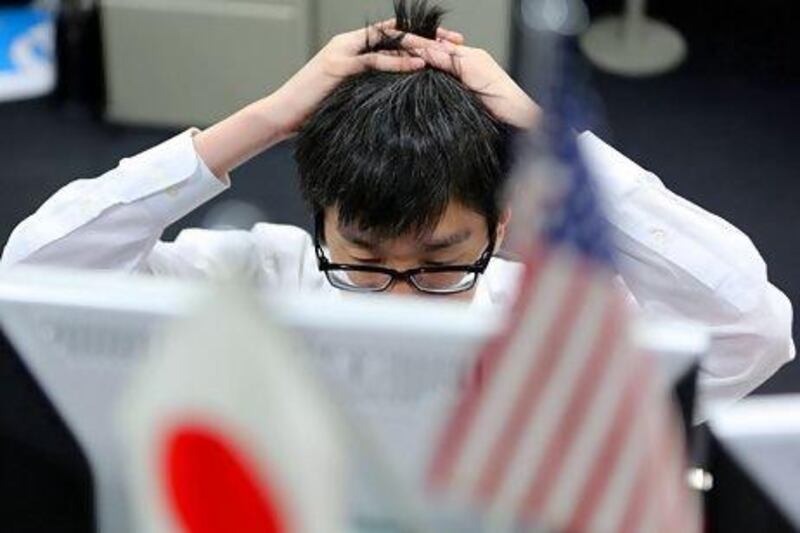If a week is a long time in politics, it is an eternity in foreign currency exchange.
Only a few weeks ago talk of a currency war was everywhere and politicians were lambasting each other for currency weakening measures. Now it is all quiet on the forex front.
The biggest developed economy actively seeking to weaken its currency - Japan - drew fire for the controversial monetary easing plan known as Abenomics earlier this year.
But the prime minister, Shinzo Abe, survived a meeting of the Group of 20 (G20) this month without harsh words from the United States for the yen's weakening.
That emboldened traders to begin another charge at the ¥100 per dollar barrier. Though the Japanese currency touched lows of ¥99.87 on Sunday, it has hit resistance below the psychologically important threshold and has not yet broken through.
The Chinese yuan also escaped criticism from the United States by name, though the US treasury secretary, Jack Lew, made a none-too subtle jab at countries seeking to devalue their currencies.
"In addition to measures to boost domestic demand, one key to this effort is a strong commitment by many countries, especially in emerging Asia, to adhere firmly to the G20's exchange rate commitments - namely, to move more rapidly toward market-determined exchange rate systems and exchange rate flexibility to reflect underlying fundamentals, avoid persistent exchange rate misalignments and refrain from competitive devaluation of currencies," he said. "Countries must also fulfil their commitment not to target exchange rates."
The yuan has depreciated 1.05 per cent since the start of the year to hit a 20-year low of 6.1659 per US dollar last week. During the same period, the Shanghai Composite Index has weakened 3.08 per cent as investors reacted to disappointing economic data with bets against Chinese companies.
Part of the weakness in Asian currencies is attributable to the resurgence of the US economy and the strength in the greenback, Neil Mellor, the senior currency strategist at BNY Mellon, wrote last week. "Given weak fundamentals in both Europe and Japan, the US looks favourable by comparison - despite the recent deterioration in US data," he said. "Far more important are recent comments by Fed officials underscoring commitment to ultra-accommodative monetary policy and the willingness to temporarily increase the pace of monthly asset purchases if conditions warrant."
The US Federal Reserve meets on Tuesday for its latest policy meeting, which is not expected to bring any changes to its current 0.25 per cent target rate.
In another reversal of fortunes from a few weeks ago, the British pound experienced a sudden spike after the release of GDP numbers for the first quarter showed the economy growing at 0.3 per cent from the previous quarter - crucially escaping a so-called "triple-dip" recession.
"While we think the news has significantly lessened the chances that the Monetary Policy Committee will announce additional unconventional monetary easing next month, we still expect the Committee to do more to help the economy after the Governor-in-waiting, Mark Carney, arrives in July," analysts from Capital Economics, wrote in a research note.
Capital expects bond-buying from the Bank of England to increase to £500bn from a current £375bn once Mr Carney settles in.
Investors were looking for good news from the British economy as an excuse to buy sterling, Max Knudsen, head of research at ADS Securities, wrote in a research report.
Elsewhere, the euro slipped briefly against the dollar after unexpectedly ugly industrial data raised hopes of a rate cut from the European Central Bank. The euro held broadly steady against the dollar, falling 0.58 per cent to at $1.3009 each, but there were signs that could easily change, Mr Knudsen added.
"Signals for sentiment this week are for some consolidation and indecision and after three days trading prices are virtually unchanged on the week," he wrote.
The European Central Bank announces interest rates on Thursday, with most economists polled by Bloomberg News predicting no change to the bank's main 0.75 per cent rate. However, a growing number are anticipating a 25 basis point cut in rates.
* with agencies





